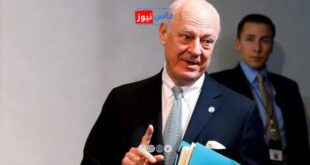In an unprecedented move, Moroccan engineer Ibtihal Abu Al-Saad rocked the corridors of tech giant Microsoft by revealing the company’s involvement in providing Israel with artificial intelligence technologies used in the war on Gaza. The shocking statements came during her interruption of a speech by Microsoft’s AI division CEO, Mustafa Suleiman, igniting a widespread debate about the responsibility of technology companies in political and military conflicts.
Abu Al-Saad did not hesitate to accuse Microsoft of complicity in the war on Gaza, asserting that the technologies provided by the company are used in identifying military targets, leading to increased civilian casualties. Her words were direct and impactful: “You are merchants of war, stop using AI in genocide.” Reactions to these statements were mixed, with some praising her courage in revealing these facts, while others criticized her statements as irresponsible.
The matter did not stop there, as human rights organizations called for an independent investigation into these allegations and for the accountability of companies involved in supplying weapons and technology to conflict parties. Microsoft, for its part, affirmed that it has provided various channels for hearing all voices, but in a way that does not disrupt work. In a related context, an Associated Press investigation earlier this year revealed the use of AI models from Microsoft and OpenAI in an Israeli military program to select bombing targets during Israel’s war in both Gaza and Lebanon.
This issue raises fundamental questions about the growing role of technology companies in modern conflicts and about ethics and responsibility in this context. It comes at a time when the world is witnessing increasing debate about the use of AI in warfare, and the Moroccan engineer’s statements serve as a wake-up call to technology companies about the need to bear their ethical responsibilities in the use of their products.
 فاس نيوز ميديا جريدة الكترونية جهوية تعنى بشؤون و أخبار جهة فاس مكناس – متجددة على مدار الساعة
فاس نيوز ميديا جريدة الكترونية جهوية تعنى بشؤون و أخبار جهة فاس مكناس – متجددة على مدار الساعة


 مهندسة مغربية تتمرد على مايكروسوفت و تكشف تزويدها لاسرائيل بتقنيات في الذكاء الاصطناعي تستخدمها في الحرب على غزة
مهندسة مغربية تتمرد على مايكروسوفت و تكشف تزويدها لاسرائيل بتقنيات في الذكاء الاصطناعي تستخدمها في الحرب على غزة













